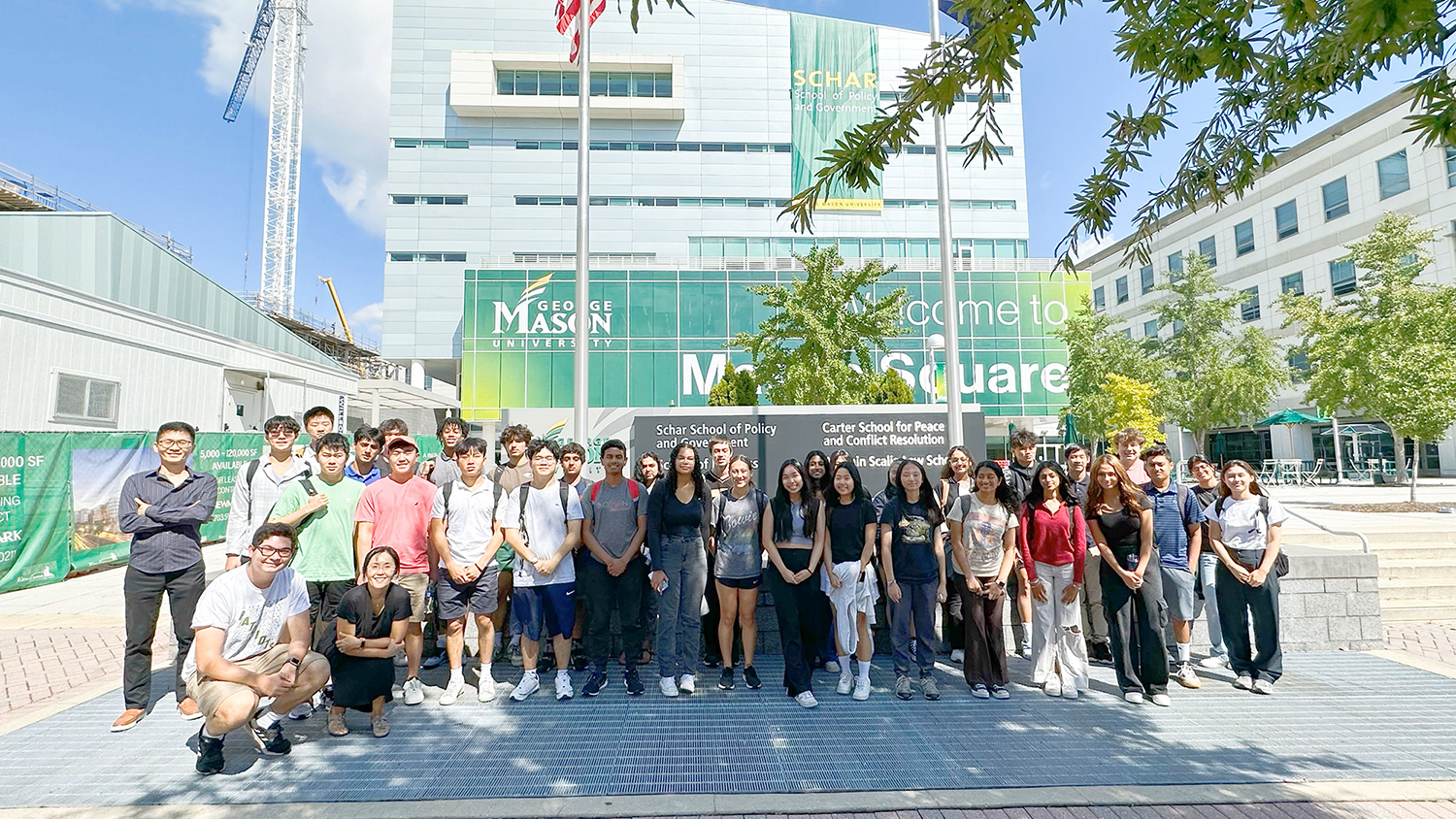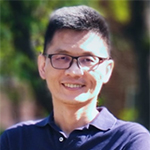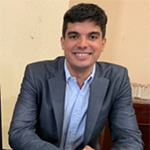Fall 2023
The Center for Biomedical Science & Policy (CBSP)
Schar School of Policy and Government
George Mason University
Location: Virtual
Course Dates: September 30th – December 15th, 2023
The internship program consists of:
- Three Synchronous Virtual Meetings:
- Opening; Introduction of the projects; Assigning Research Projects, September 30th, noon to 2:00 p.m. EST; 9:00 a.m. - 11:00 a.m. PST;
- Research Project Feedback Day, Thursday November 30th, 7:00 p.m. - 8:00 p.m. EST; 4:00 p.m. – 5:00 p.m. PST;
- Finalizing Research Paper and Certificate Session, Saturday, December 9th, noon to 2:00 p.m. EST; 9:00 a.m. - 11:00 a.m. PST;
- Six asynchronous study sessions: Our faculty team will release a recording of project instructors each week based on students' research progress.
- Optional - Ten Synchronous Office Hour/Group Discussions on Tuesdays and Thursdays: Virtual 7:00 p.m. - 8:00 p.m. EST; 4:00 p.m. – 5:00 p.m. PST;
- Two weeks Research Paper Finalizing Period, December 1st – December 15th, 2023: The faculty team will work closely with students to help them finalize their research paper for publication at the Center for Biomedical Science & Policy (CBSP) and the Schar School Young Scholars Journals Webpage.
Registration Fee:
We can only accept 18 students this fall. Available seats are on a first-come, first-served basis.
- Please email execed@gmu.edu for application and program fees.
- Need-based scholarships are available.
Certification: Students who successfully finish the program will receive a Center for Biomedical Science & Policy (CBSP) Young Scholars Research Program Certificate of Completion.

Program Summary
This Young Scholars Research Program is designed for high school and biomed undergrad students, who are interested in doing biology, medicine, biostatistics/informatics, mathematical modeling and big-data analytics research with university faculties. We aim to work collaboratively on the intersection of biomedicine and artificial intelligence (AI) to generate policy recommendations. Some of these research projects will be supported by extramural research grants from top research funding agencies such as National Institutes of Health (NIH) and National Science Foundation (NSF), as well as other private and public sources including foundations, industry partners, and other governmental agencies.
During this program, students will be participating in a research project applying some of the following methods, including but not limited to:
- Biostatistics including descriptive analysis, regressions and survival analysis using R or Stata
- Network Analysis using Gephi and R
- GIS mapping and spatial analysis using QGIS
- Machine Learning (ML) algorithms with R or Python coding
Program Goals
- Introduce students to interdisciplinary research in the area of bio and medical science
- Support student career paths by providing hands-on research experience
- Expand student knowledge on a variety of research tools and applications that are used in research in the biomedical context
Program Benefit
- Gain confidence and prepare for transition to college life
- Receive instruction on practical research skills
- Gain valuable teamwork experience and explore possible career paths
- Develop and refine skills for resume
- Network with professionals in the field
Research Projects Highlights and Features
Dr. Olds and Dr. Koizumi will lead students to experience blended research projects and course work from multiple disciplines such as bioethics and human subject studies, epidemiology and geospatial studies, chronic disease management and prevention, surgery outcomes and disparity in access to care, and gut microbiome analysis.
Students’ research projects will have the opportunity to be published on The Center for Biomedical Science & Policy website. In contrast to our summer program, the primary objective of this program is to produce a solid research paper in 4 months which ideally be published in professional conference proceedings and peer-reviewed journals within a year. For this reason, we limit the number of students involved in each project to 3 at maximum.
Research Projects include:
- Project 1. Comparative study of gut microbiome dysbiosis between healthy individuals and chronic kidney disease and end-stage kidney disease patients. (Skills acquired: Network analysis, R programing and basic statistics)
- Project 2. Graft and patient outcomes of transplants with donors from a different mechanical cause of death. (Skills acquired: Descriptive and some biostatistical analysis)
- Project 3. Illicit kidney transplantation: Costs, Locations, and Seller characteristics. (Skills acquired: Basic python coding, Mapping and spatial analysis)
- Project 4. Longitudinal study of racial, sex and training profiles of transplant surgeons in the United States (Skills acquired: Descriptive statistics and regressions).
- Project 5. Longitudinal shift of immunosuppressive regimen among pediatric transplant recipients. (Skills acquired: Descriptive statistics and some advanced biostatistical analysis).
- Project 6. Bibliometric insights into the changing landscape of diet and gut microbiome research (Skills acquired: Network analysis and R programing)
About the Instructors

Dr. Jim Olds is University Professor of Neuroscience and Public Policy at George Mason University. He served from 2014-2018 as head of the Biological Sciences Directorate at the U.S. National Science Foundation (NSF), responsible for an annual budget of $750M. Olds’ former directorate funds the majority of non-biomedical research at America’s research institutions. While there, he was also NSF lead for President Obama’s White House BRAIN project, deputy lead for NSF on Vice President Biden’s Cancer Moonshot and co-chaired the White House Life Sciences Subcommittee of the National Science and Technology Council.
Olds also holds the position of Adjunct Professor in the Department of Anatomy, Physiology and Genetics at the Uniformed Services University of the Health Sciences.
Prior to his time at NSF, Olds was the Director of George Mason University’s Krasnow Institute for Advanced Study, Chair of the Molecular Neuroscience Department and the Shelley Krasnow University Professor of Molecular Neuroscience.
Olds received his Ph.D. in neuroscience from the University of Michigan and his BA in chemistry from Amherst College.

Dr. Naoru Koizumi is Professor of Public Policy and Associate Dean of Research & Grants in the Schar School of Policy and Government at George Mason University. She specializes in medical policies, particularly in the fields of organ transplantation and the end-stage kidney and liver diseases. Her research focuses on the applications of various quantitative methods such as biostatistics, Geographic Information Systems (GIS), simulation and mathematical optimization to analyze various clinical and policy questions related to organ transplantation and other chronic disease treatments. Her projects funded by NIH and NSF include simulations and optimizations of organ allocation (NIH-R21) and bed allocation in a mental health system (NIH-R21 & R01), simulation of slum expansion in India (NSF) and mathematical analysis of illicit kidney trade networks (NSF). Her grant from the Bill & Melinda Gates Foundation investigated effectiveness of ICT-based interventions designed to enhance medication adherence among Tuberculosis patients in India.
Professor Koizumi completed her first doctoral program in Regional Science from the University of Pennsylvania in 2002. The extension of her doctoral research was funded by National Institutes of Health. Her second PhD (2005) is in Environmental and Preventive Medicine from Hyogo College of Medicine, Japan. Before joining the Schar School of Policy and Government, Professor Koizumi was a post-doctoral researcher at the Electrical and Systems Engineering Department of the University of Pennsylvania where she worked on various health sector projects in collaboration with the School of Medicine. Outside academia, Professor Koizumi worked for several international development agencies (IDB and EBRD) and in private consulting, participating primarily in social and environmental sector projects in Latin America and East Europe.
Project Advisors and Leads

Dr. Meng-Hao Li is a Postdoctoral Research Fellow at George Mason University's Center for Biomedical Science and Policy. His expertise lies in health informatics and e-health policy, where he adeptly employs text mining, machine learning, and network analysis to address his research inquiries. Dr. Li completed his PhD at George Mason University in 2022 and was honored with the Joseph L. Fisher Public Policy Award. With a collaborative spirit, he has engaged with over 20 scholars, resulting in the publication of more than 30 research articles. Dr. Li's involvement extends to national health databases, including N3C, HCUP, and UNOS, which collectively encompass data from over 10 million patients and hundreds of millions of records.
Dr. Mehdi Mayebpour, Managing Director of Virginia BioAnalytics

Mr. Patrick Baxter is a Public Policy PhD Candidate and Graduate Research Assistant at the Schar School of Policy and Government with nine years’ experience as a practicing quantitative researcher. His current research focuses on domestic healthcare policy, and his dissertation centers around CMS inpatient evaluation methodologies. He has contributed to research on organ transplantations and other chronic disease treatments, ChatGPT sentiment, vehicle safety, identifying drug trafficking networks, government partner selection and emergency relief management since attending Schar. He has lived and worked in various countries over his career, including Malawi, Rwanda, Indonesia, Mozambique, and the US. During this time, he assisted on a broad set of poverty alleviation research topics. These include household financial welfare, agricultural input adoption, family planning, maternal health, rural teacher retention, tax collection, and community conflict resilience.

Mr. Zifu Wang is currently dedicated to his Ph.D. in the field of geographic information science at George Mason University. Zifu has been working as a graduate research assistant at the NSF Spatiotemporal Innovation Center, a collaborative effort involving GMU, Harvard, and UCSB. Zifu has published more than 10 research articles in the domains of data mining, social media analysis, cloud computing, big data computing, and natural language processing. He is presently engaged in an investigation of the illicit kidney trade network through the analysis of news media data. Additionally, he oversees the management of a computing cluster, encompassing cloud computing, big data platforms, and High-Performance Computing (HPC) platforms.
